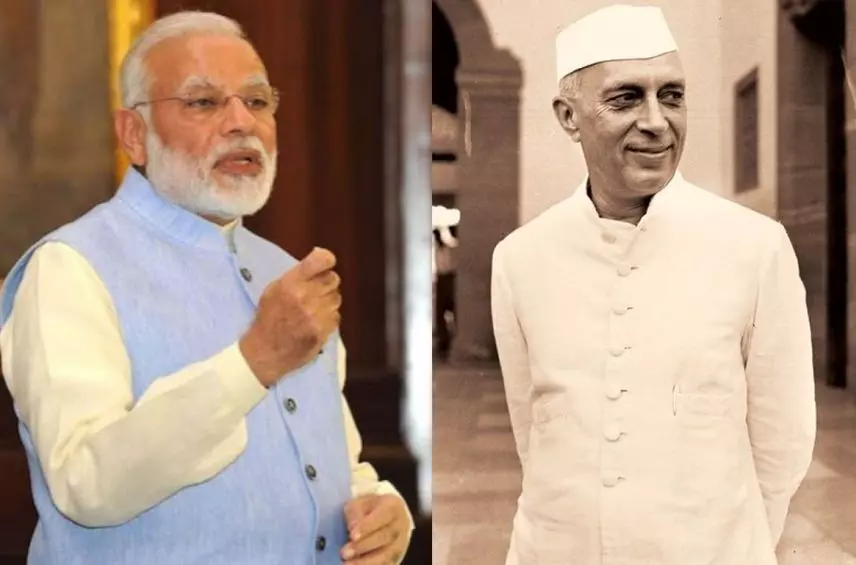
Did Nehru make a blunder over Kashmir as blamed by BJP, his letters say otherwise
text_fieldsNew Delhi: Contrary to the BJP government’s reiterated criticism about the first Prime Minister of the country over going soft on Kashmir under the pressure of Pakistan during the 1948 war, letters Jawaharlal Nehru had corresponded with the then commander-in-chief, Gen Sir Francis Robert Roy Bucher say he had expressed his concerns over the ceasefire, for which the Army chief had instructed.
The letters, which had been kept classified in India for decades and which the Guardian revealed after reviewing them, say the Army Chief instructed the Prime Minister against continuing war with Pakistan, citing the inability of the Indian army to withstand long military operations in Kashmir.
Gen Sir Francis Robert Roy Bucher, the first Army chief of independent India and the last non-Indian Army chief, was the British, who wanted Nehru to go for a political compromise with Pakistan to end the war and bring peace in the valley.
In his correspondence with the Army chief, Nehru raised concerns over Pakistan’s military advancement in the region by building roads to enlarge its positions in Kashmir.
Nehru has been the target of the BJP over the issues related to Kashmir and its sovereignty. The BJP’s claim is that had not there been a compromise made by Nehru, the entire Kashmir would have been with India. The BJP termed Nehru’s compromise on the status of disputed Kashmir as an ill-informed “blunder”. The BJP government led by Prime Minister Narendra Modi has used this narrative for stripping the special status of Kashmir in 2019, in the guise of rectifying this ‘blunder’.
In fact, in a letter had sent on 23 December 1948 in reply to Bucher’s instruction for a political comprise, Nehru wrote “it is clear to me that we cannot rely on Pakistan remaining on the defensive…. in the event of Pakistan continuing their persistent shelling and offensive operation and our not being able to check this there, there is every likelihood of war taking place with Pakistan.”
However, from the letters it has been confirmed that it was the insistence of Butcher, the most trusted adviser in the army, Nehru went on soft with Pakistan over Kashmir. The letters are reported to have been classified by Modi’s administration.
In his message to Nehru dated 28 November 1948, Bucher warned of fatigue among Indian troops in Kashmir, adding that an “overall military decision was no longer possible”.
“Army personnel evince two weaknesses, lack of training in the junior leaders, tiredness and ennui in the other ranks … In brief, the army needs respite for leave, training, and vitalising.”
The war ended on 1 January 1949 with a ceasefire arranged by the United Nations, and later that year Nehru provided special status to the state of Jammu and Kashmir, giving autonomy.
A truce had ensued under the UN mediation on 1 January 1949 and later that year Nehru provided special status to the state of Jammu and Kashmir, introducing article 370 under which the region got autonomy, which was at that time crucial to protecting their rights in the India-controlled parts of the Muslim-majority state, and also reduced tensions with Muslim-majority Pakistan.
The India home affairs minister, Amit Shah, 2019 said the decision to reach an UN-mediated compromise was Nehru’s “biggest mistake”, criticising it as a “Himalayan blunder”.























